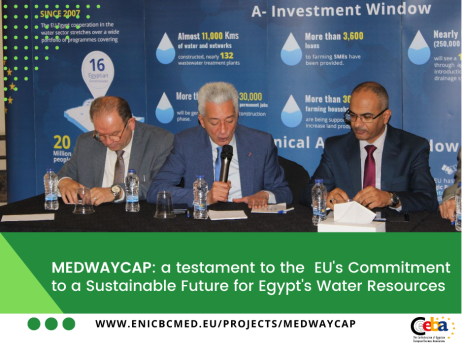The European Union has been a crucial development partner and supporter of the water sector in Egypt for many years, providing significant amounts of funding and investment to support water infrastructure development and management. In a recent interview, Dr. Ayman Ayad, Water and Utilities Sector Manager at the EU Delegation to Egypt, highlighted the EU’s ongoing commitment to reducing water losses and improving the efficiency of water networks in the country.
Dr. Ayad’s interview took place during the final event of the “Pre-Feasibility Study for the National Desalination Programme” in Cairo, Egypt, where he discussed the EU’s involvement in the study and its broader support for water sector development in the country. The event brought together key stakeholders from the water sector, including high-profile individuals and organizations, to discuss the findings of the study and explore possible financing schemes for the desalination program.
One important initiative that was introduced by Dr. Alaa Ezz, Secretary General of CEEBA- the Confederation of Egyptian European Business Associations, during the event was the MEDWAYCAP project, which aims to promote sustainable water management practices in Egypt through the adoption of non-conventional water reuse and management strategies. The project is a testament to the EU’s commitment to building a sustainable future for Egypt’s water resources and is just one example of the many initiatives that the EU is supporting to improve water sector management and infrastructure in the country.
The EU’s investment in the water sector in Egypt has been substantial, with millions of euros in grants and over €3 billion in investment from EU member states and financial institutions. This funding has been critical in supporting water infrastructure development, improving the efficiency of water networks, and reducing water losses. The EU’s ongoing support for the water sector is also aligned with the national water resource plan for 2037, which highlights the importance of improving water management and reducing water losses.
In conclusion, the EU’s support for the water sector in Egypt is an essential element of the country’s sustainable development goals, and its commitment to reducing water losses and enhancing the efficiency of water networks is critical to achieving these goals. The MEDWAYCAP project is an excellent example of the EU’s commitment to building a sustainable future for Egypt’s water resources, and with continued support from high-profile individuals and organizations in the water sector, there is hope that the country can achieve its water management goals and ensure a sustainable future for its people.

